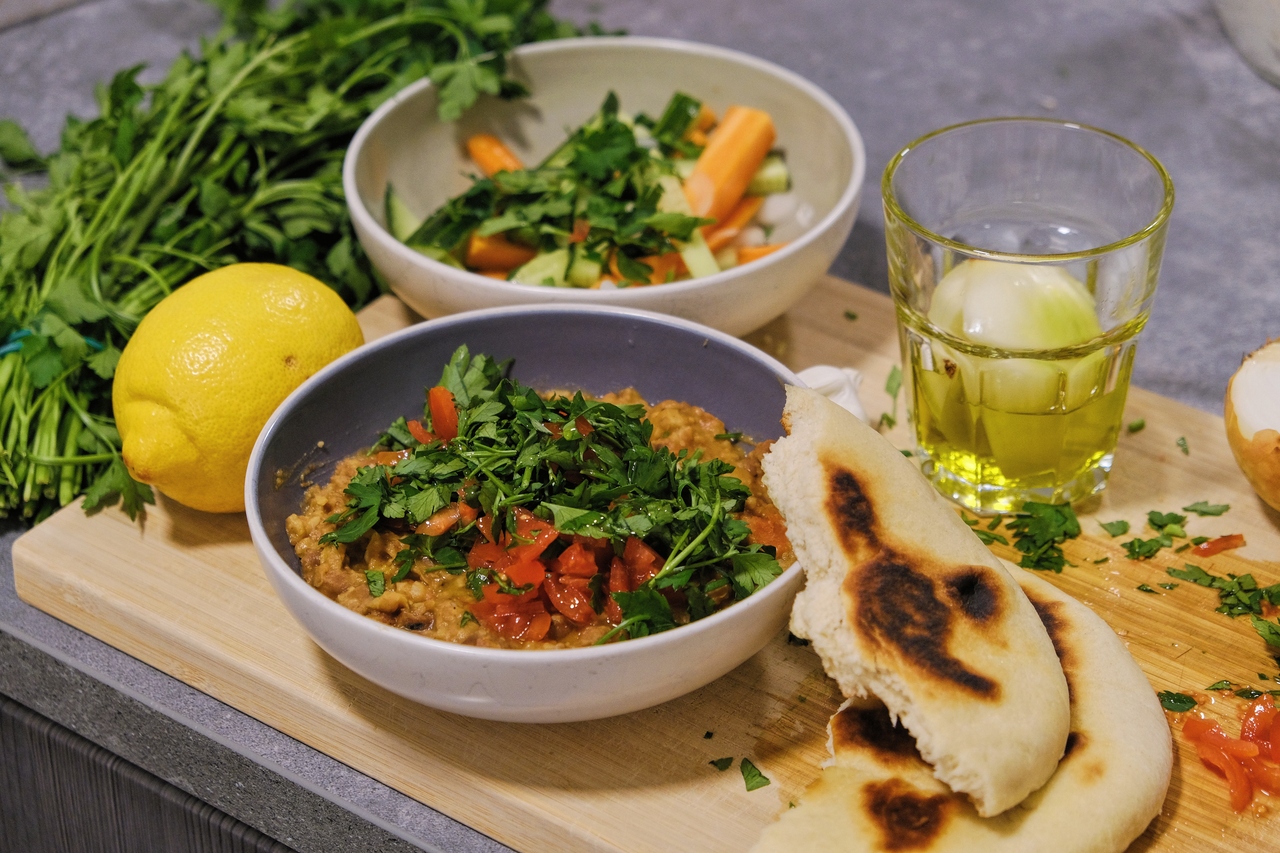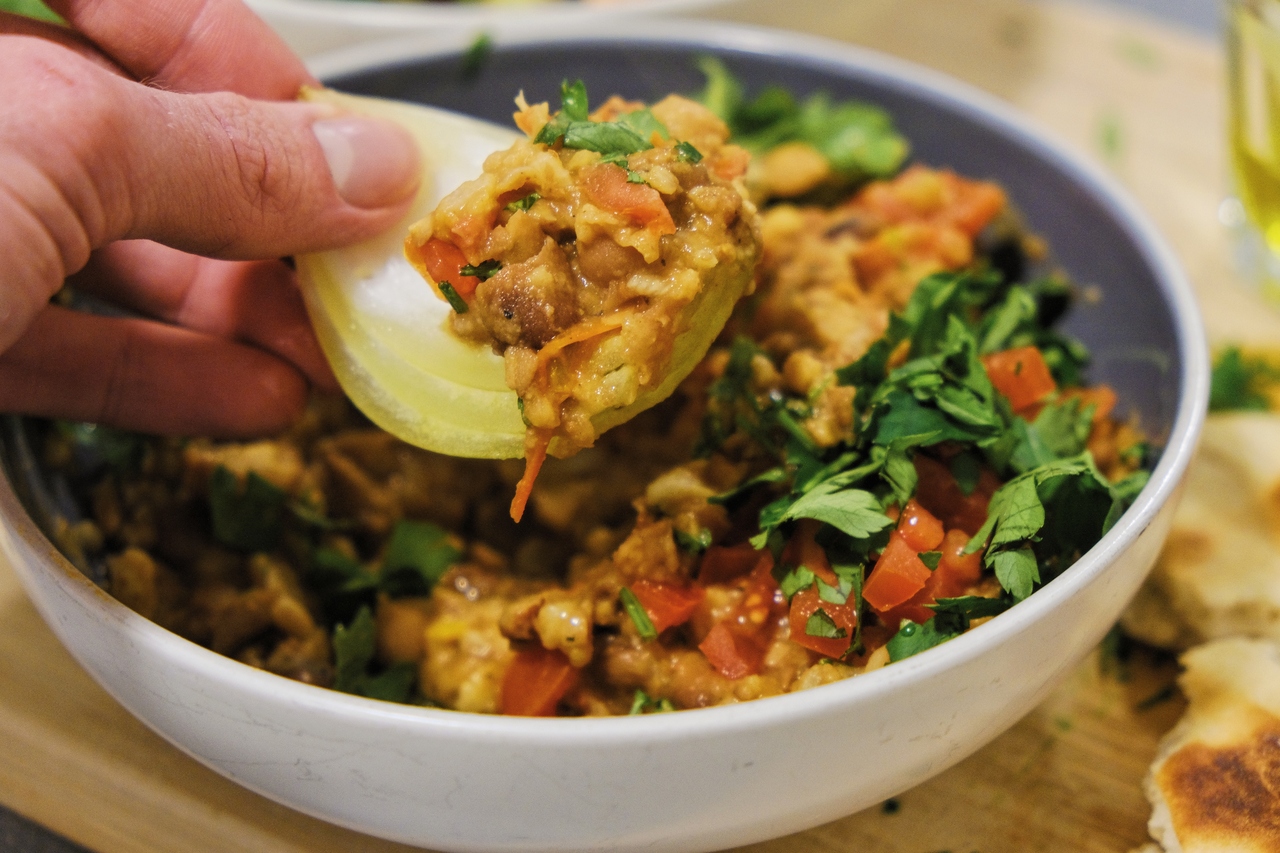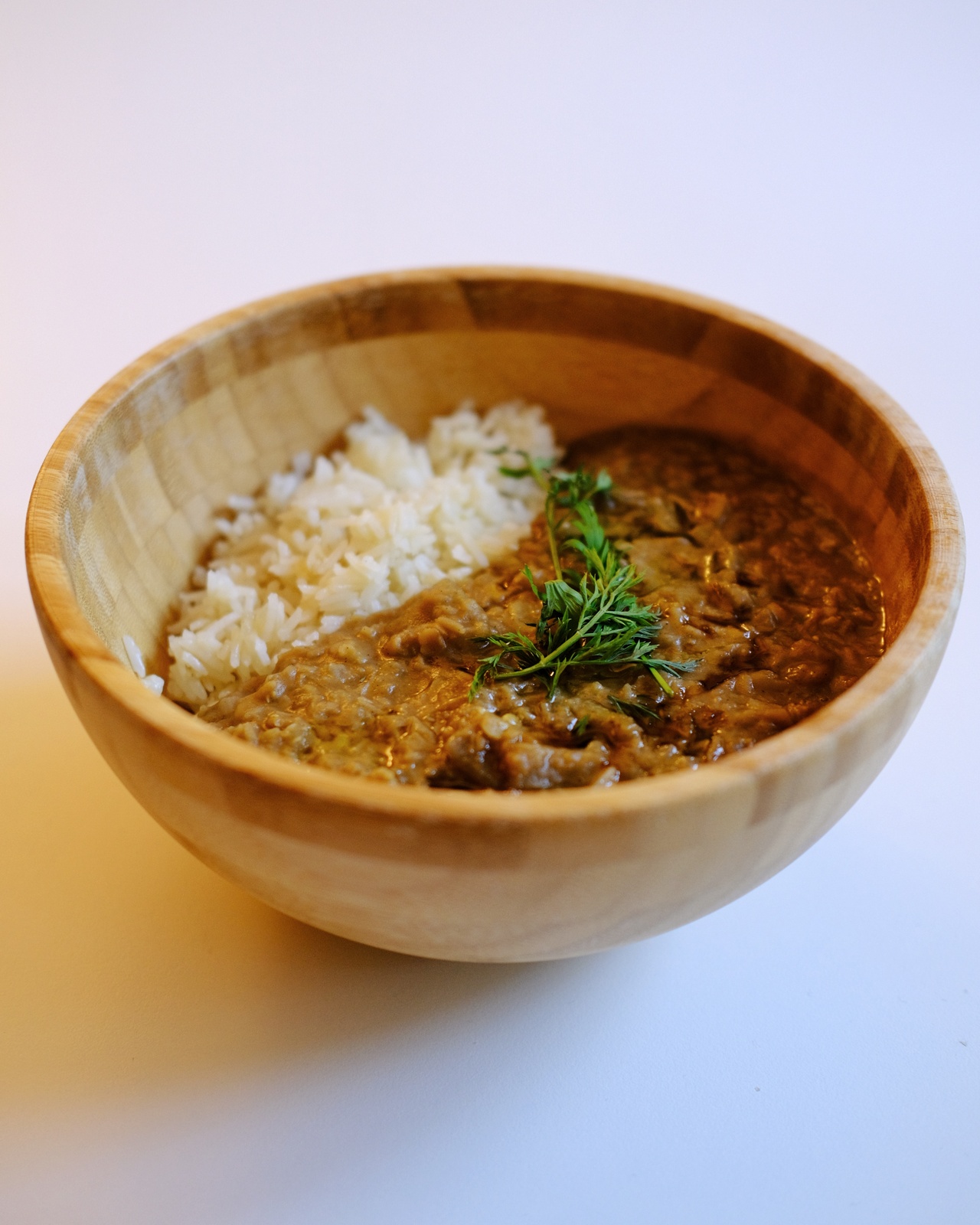Ful mudammas

Ful mudammas with quick pickled vegetables and fresh flatbread in my kitchen in Helsinki.
I have come to the conclusion that it is virtually impossible to ascribe a dish to a single country. Either a country's borders are quite arbitrary and thus do not necessarily contain a single culture. This is the case with many African countries. Or, countries in relative geographical vicinity have just been influenced by similar cultures, religions, invaders, and whatever else history threw at them.
Ful medames (which is the non-Arabic English spelling) actually originates in Egypt, from where it was exported across parts of the Arab, African, and Asian world. Why am I putting this under Palestine then? Well, while researching different versions of this dish, I also encountered a great Palestinian-American cook who made a Palestinian variation. She noted that a real Palestinian version would use a mix of fava beans and chickpeas. This is important, because the only fava beans I could find in Finnish shops were those mixed with chickpeas in a tin. Looked like I had to go with the Palestinian variation after all!
No problem of course, it still tastes amazing.
On a slow heat, start by sizzling some minced garlic and ground cumin. I also threw in some leftover habanero, but you can easily do without. When your aromatics are lightly colored, throw in the drained and rinsed fava beans + chickpeas. Up the heat a tad, and throw in a couple splashes of water. Crack some salt and pepper to taste, and simmer away. I was looking to properly soften up the beans, so they could easily be mushed later on. Keep adding water if necessary. Mash the ful to an appealing consistency, and ladle in a nicer serving bowl than I had access to. Garnish with chopped tomato, parsley, lemon, and a good drizzle of olive oil. I served it with some quickly pickled vegetables and fresh flatbread.

Scooping up ful mudammas with quarters onions that have been soaking in olive oil.
Now apparently Palestinian traditional grandma's scoop up the ful with onions that have been soaking in some good olive oil. Naturally, I tried my hand at that too. It is a bit intense, but good to have tried.
Rummaniyya

Lentil-aubergine-pomegranate stew served with rice in wooden bowl, in my kitchen in Amsterdam, 2021.
A lentil, aubergine and pomegranate stew from the Gaza strip. Inspired by a recipe from Yasmin Khan's book Zaitoun: Recipes from the Palestinian Kitchen, which I casually browsed in the Waterstone's in Amsterdam recently. Also see Wikipedia, The Guardian and the Taste Atlas.
Place lentils in a saucepan and add enough water. Put on middle-high heat, add ground cumin and coriander, and simmer for about fifteen minutes until the lentils begin to soften. A quick note on the lentils to use: I had red lentils lying around, but these actually are too soft and lose their shape after cooking them down. In the recipes I read, everyone suggests brown lentils instead.
In the meanwhile, cut a few aubergines (peel the skin if you want) into cubes with two centimeter dimensionality. Add them to the pan, along with eighty milliliters of pomegranate molasses, sumac, salt, pepper, and some olive oil. Shimmer for a while.
Fry some finely minced onions and garlic until soft, golden, and fragrant. Set aside when finished.
I used some of that oil and aromatics to prepare my rice. Quickly fried it in the pan, then added water and let it come up to a boil. Add salt, turn heat down, and cover with a lid.
After the rice is cooked and you took it off the heat to rest for five minutes, swirl the onion-garlic mixture through the rummaniyya.
Traditionally this would be served with a flatbread like taboon instead of rice.
Garnish with pomegranate seeds and some fresh herbs (mint, parsley), drizzle over some extra olive oil.